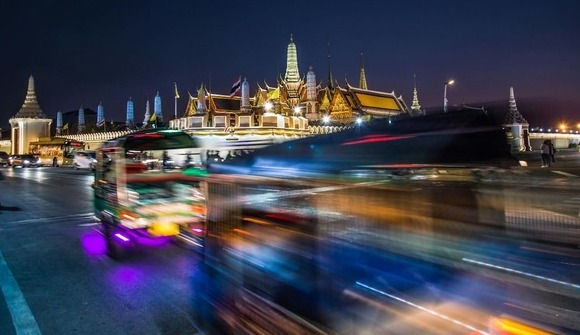Thailand Opens Casino Resorts to Private Investors
- Mj Panaligan
- Oct 2, 2024
- 2 min read
Updated: Mar 31
Thailand's Deputy Finance Minister says Disney, Universal and other private investors could join integrated casino resorts once new regulations are in place.

Thailand Deputy Finance Minister, Julapun Amornvivat, has announced that the country’s integrated casino resorts will welcome participation from all private investors. He disclosed that major global entertainment firms like Walt Disney and Universal Studios could even establish a foothold in Thailand, provided they adhere to the necessary regulatory frameworks once the relevant legislation is enacted.
The Deputy Minister’s comments come amid a broader discussion in Thailand about how to integrate casinos into its entertainment landscape. Some politicians have voiced the opinion that the government should operate casinos directly, rather than allowing global operators to participate. However, Amornvivat firmly supports an open approach that invites international players who want to explore opportunities in these integrated casino resorts within entertainment complexes.
His comments, as reported by The Bangkok Post, came as he called for comprehensive discussions among relevant state agencies regarding the operational framework for these casinos. He aims to conclude these discussions by mid-month, ensuring that the proposal can progress smoothly through the legislative process. The discussions will not only cover the operational aspects but also delve into the mechanisms for tax collection, a crucial element of the initiative.
Under the existing State Fiscal and Financial Disciplines Act, tax collection responsibilities fall to the Customs, Revenues, and Excise departments within the Finance Ministry. This structure complicates the establishment of any separate committee for tax oversight, a suggestion that has been proposed by some members of the House. Amornvivat emphasized that adherence to the law is non-negotiable, highlighting the importance of clarity and accountability in financial operations.
Addressing concerns related to potential social impacts, he reiterated the need for careful assessment of the project. The Deputy Minister stated, “We need to assess the project thoroughly to prevent negative impacts on the economy and society.” His commitment to ensuring responsible development indicates a sensitivity to the social implications that gambling could introduce.
The prospect of large-scale entertainment complexes has generated excitement among both investors and local communities. With the potential for job creation and increased tourism, stakeholders see these developments as a way to revitalize the economy. However, there are also voices of caution urging careful consideration of gambling’s societal impact, particularly concerning addiction and community well-being.
As discussions progress, Amornvivat has stressed the importance of transparency in operations. Investors, whether local or international, must comply with established guidelines to ensure a fair playing field. This transparency will be vital not only for regulatory compliance but also for fostering public trust in the new industry.
Amornvivat also addressed suggestions regarding the establishment of a fund aimed at assisting individuals with gambling problems. Current regulations prevent ministries or agencies from creating redundant funds, which will necessitate further discussions before any solutions can be proposed. This indicates a recognition of the potential risks associated with gambling, and a desire to implement safeguards to protect vulnerable populations.
The introduction of casinos in Thailand represents a significant shift in policy since there has been an increasing interest in the potential economic benefits of legalizing casinos in Thailand. For years, the country has maintained strict laws against gambling, often forcing locals to seek entertainment options abroad.












Comments